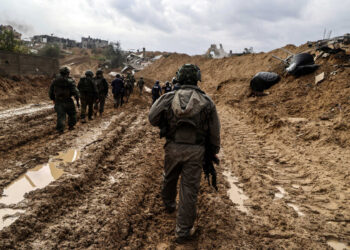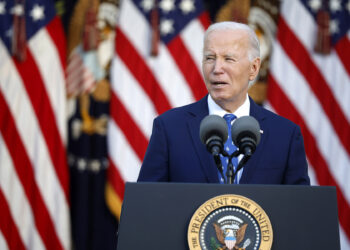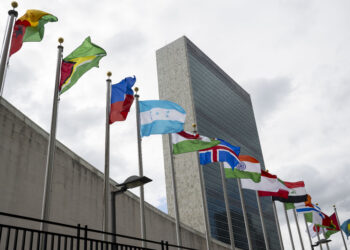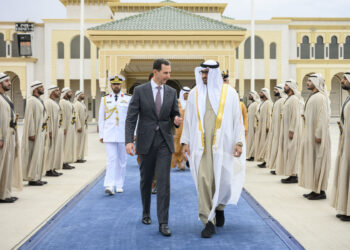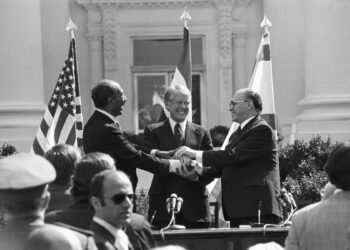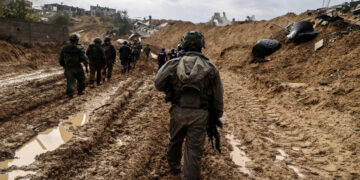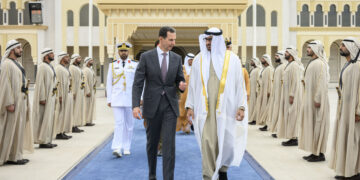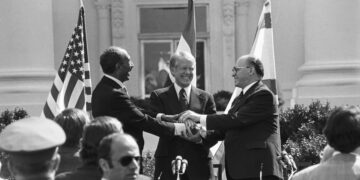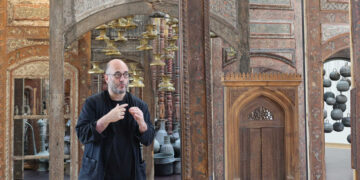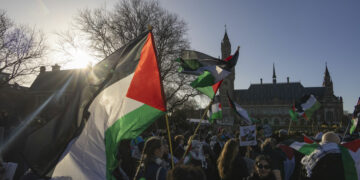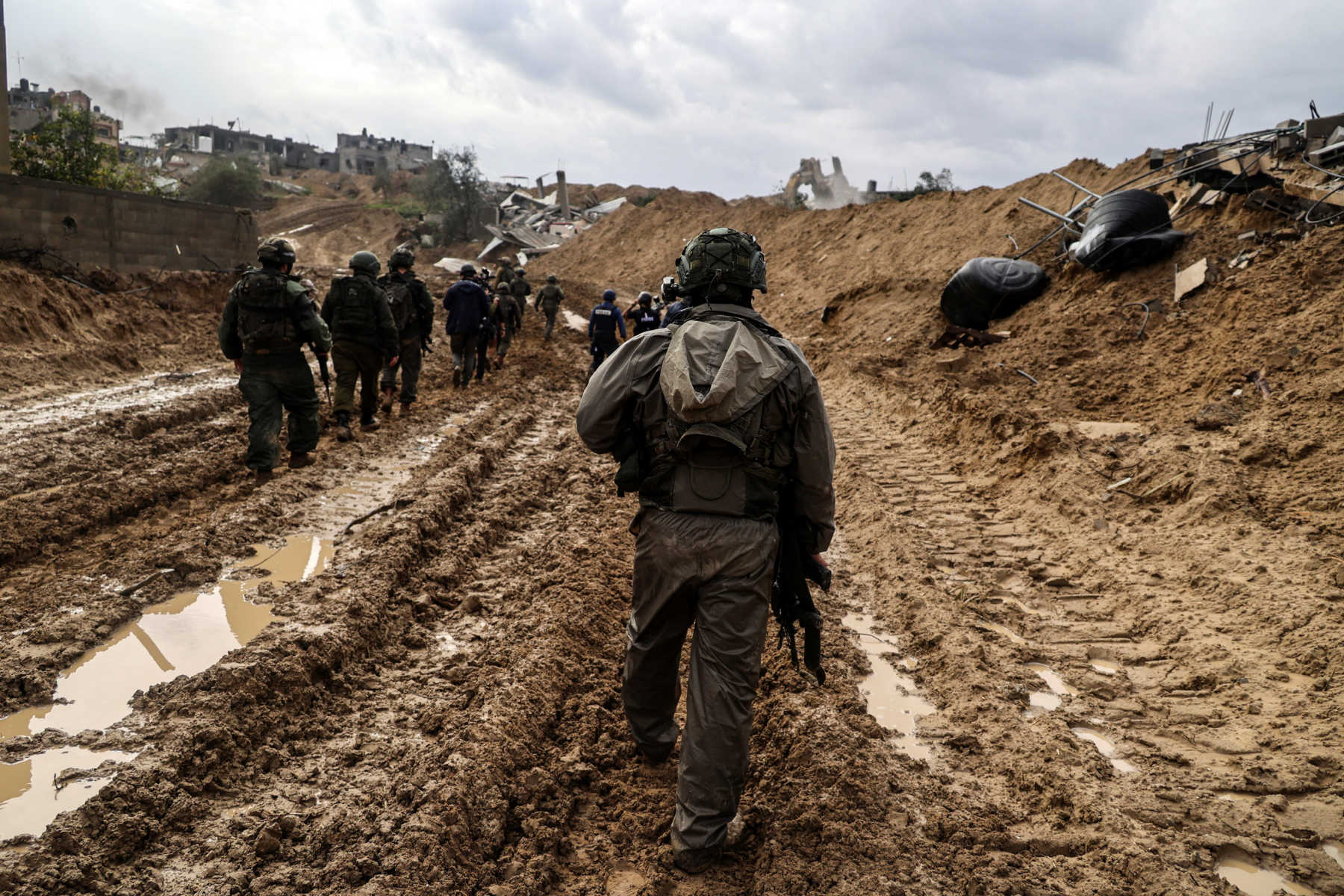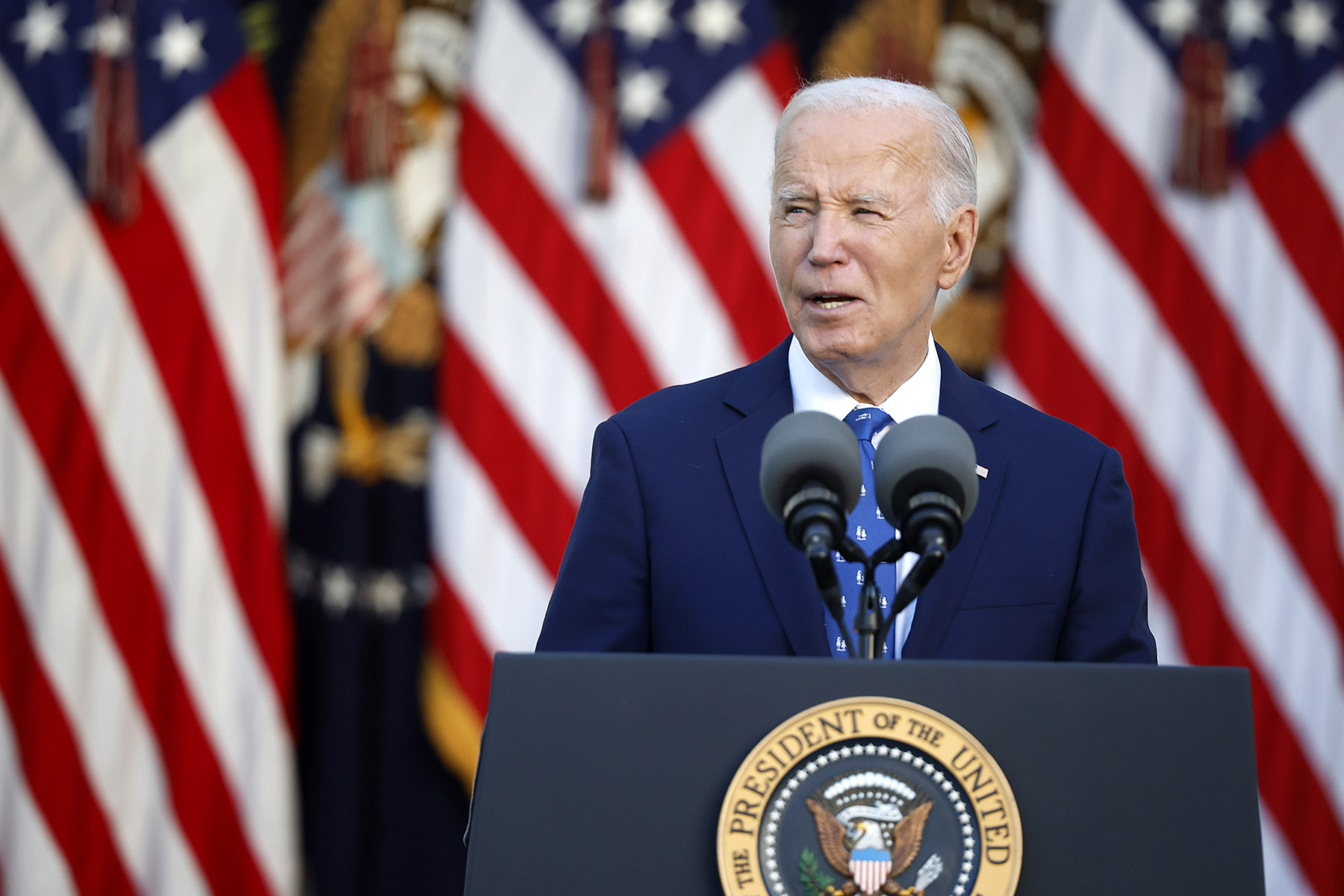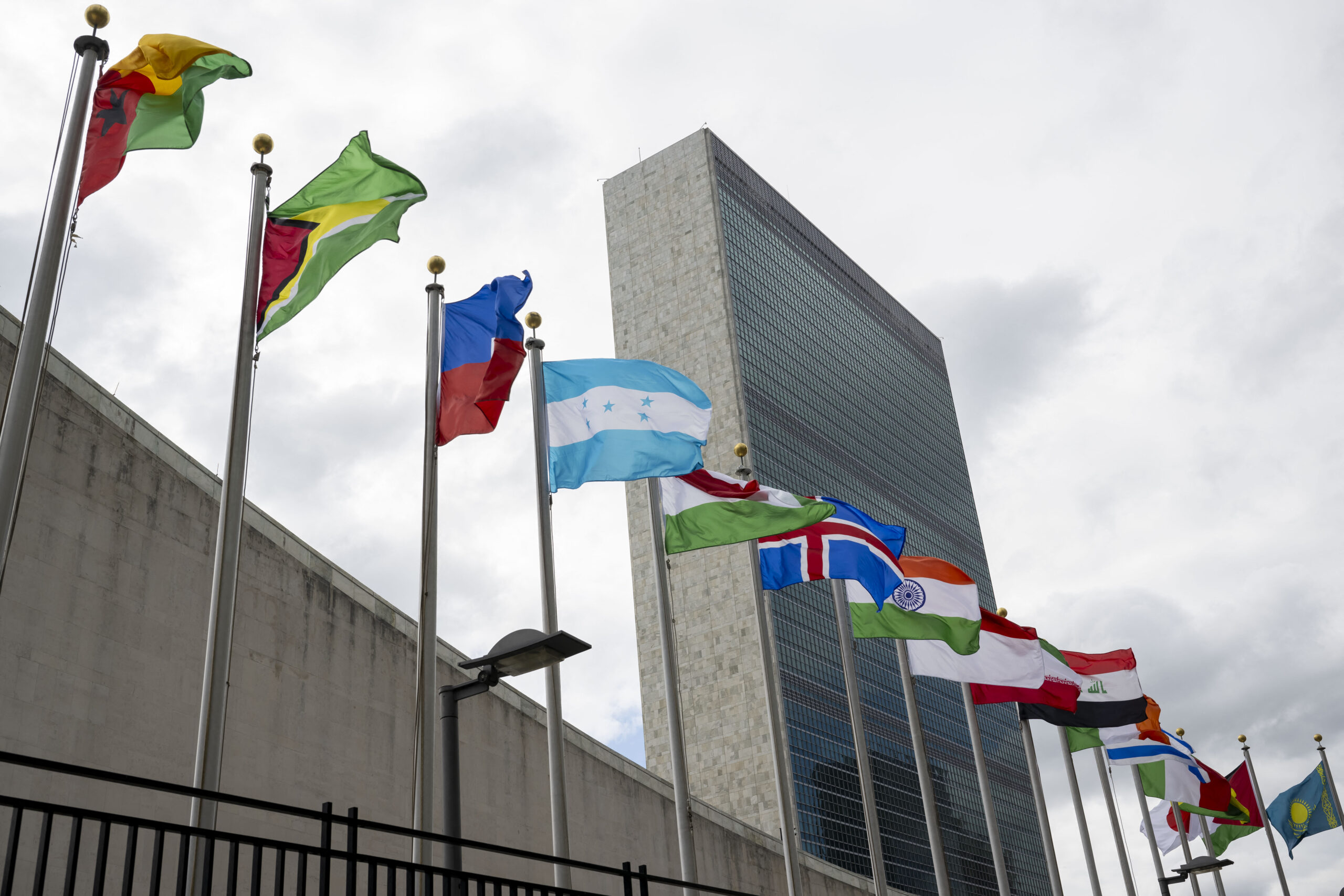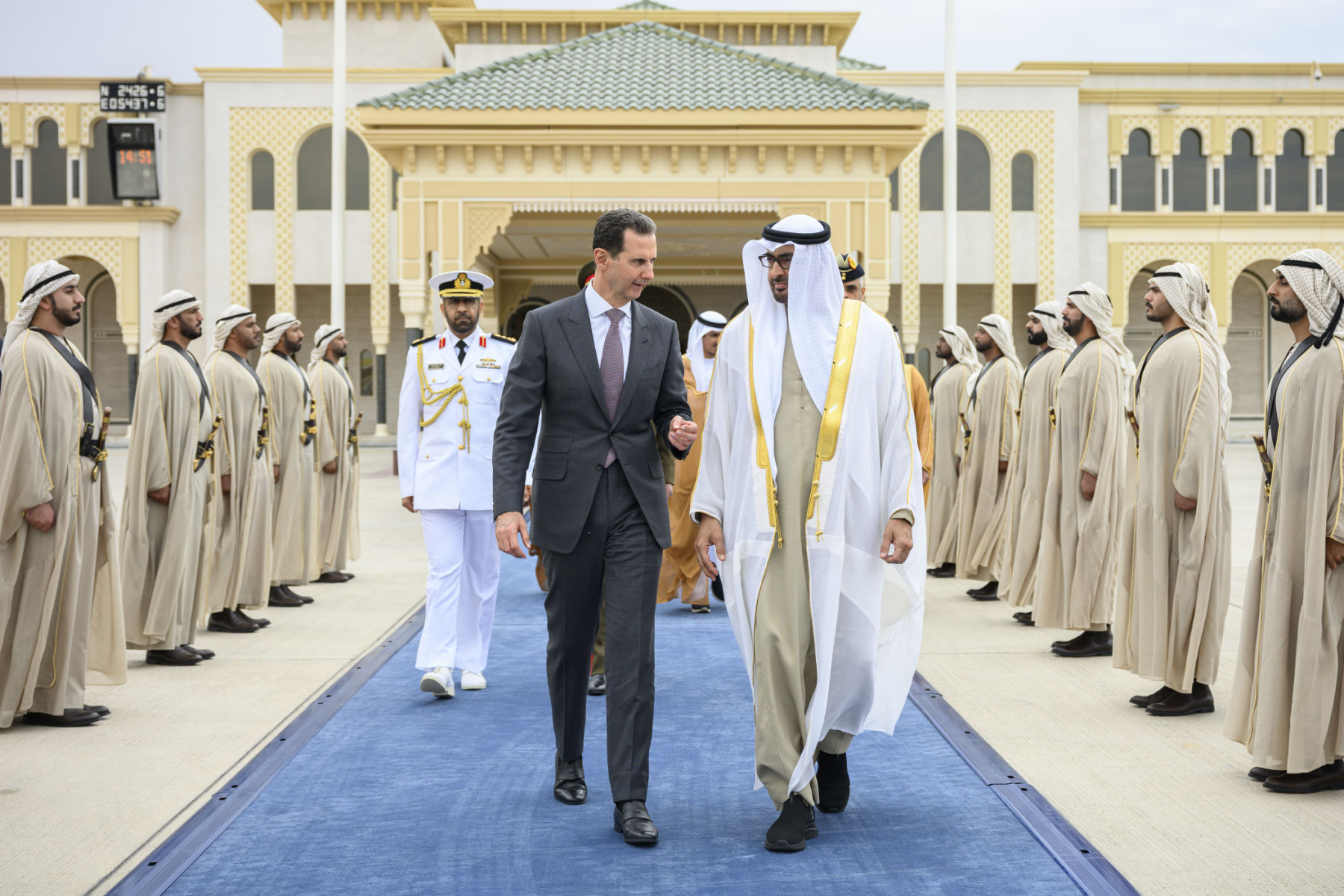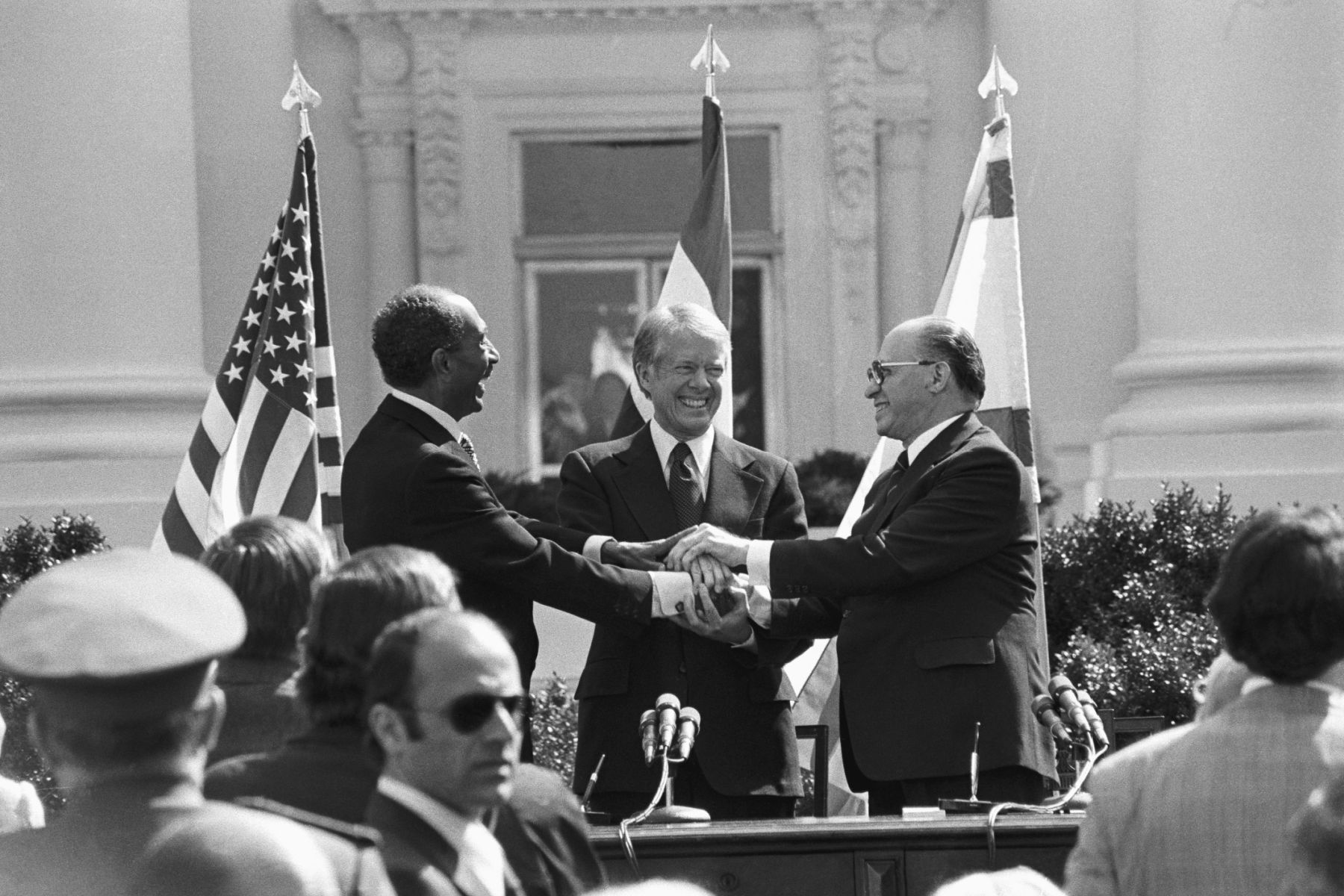Omid Memarian, a journalist, analyst and recipient of Human Rights Watch's Human Rights Defender Award, is the Director of Communications at DAWN.
Last week, journalist Ayman Mohyeldin was one of two recipients of DAWN's inaugural Integrity Award, which celebrates voices who best exemplify Jamal Khashoggi's commitment to freedom and democracy in the Middle East and North Africa. Mohyeldin, who is Egyptian-American, is an anchor at MSNBC, where he hosts a weekly prime-time show, Ayman. He reported for years as a correspondent in the Middle East, covering the war in Iraq, several Israeli wars in Gaza, the 2011 popular uprising in Egypt, the civil wars in Syria and Libya, and much more.
"The underlying problems of the Arab world are not unique to the Arab world. Oppression, corruption, authoritarianism—these are problems that other regions in the world have faced and overcome," Mohyeldin said in his remarks at DAWN's award dinner at the National Press Club in Washington. "Only in the Arab world do we hear that democracy is dangerous."
"Both Western and Arab leaders have presented a false binary choice," he added—"either accept authoritarian governments that oppress and rule with an iron fist, or you will get chaos and extremism that will destabilize the region and engulf your own countries."
In an interview with Democracy in Exile, Mohyeldin discussed the state of journalism in the United States, how his reporting from the Middle East shapes his understanding of U.S. foreign policy, and why you need to have "a healthy press in a free society."
The following transcript has been edited lightly for length and clarity.
When you don't have a healthy press in a free society, you go down a dangerous slope of having a very uninformed citizenry, which then has secondary, knock-off effects on how people make decisions in their democracy.
- Ayman Mohyeldin
You have covered so many conflicts in the Middle East and around the world. How has reporting on the ground shaped your understanding of foreign policy?
Well, I think in a nutshell, it gives me the ability to see the consequences of foreign policy. In many of these cases, you see firsthand the results of either diplomatic failures or diplomatic attempts to resolve conflicts that have not worked—or you see a whole host of different foreign policies play out, depending on which specific conflict. You see firsthand the results of these attempts by governments to achieve objectives, either first through foreign policy, then if not militarily.
Do you think politicians who had the same experience of witnessing how policies impact people's lives would have made different decisions, or they might have different priorities?
It's tough to say, because there are politicians who have served in conflicts. There are a lot of American politicians—for example, like the late Senator John McCain and even John Kerry, and I'm sure there were many others in the Senate in 2003 who served in the American military—who saw the consequences of war firsthand, but at the same time still voted to go to war in Iraq in 2003. So I'm not sure I can definitively say one way or the other whether politicians who make these decisions to lead countries into war are better off having seen war firsthand. Sometimes it makes them more power-hungry, perhaps other times it makes them less likely to go to war.
How do you think your international reporting experience informs your approach to covering political and social issues in the United States, especially in the context of growing political polarization?
I think there's sometimes a big disconnect between the framing of conversations for domestic political purposes in the United States and what they're actually doing overseas. If you take, for example, the focus on the Iraq War, and how that war in 2003 was sold to the American people, it was basically portrayed as a continuation of the "war on terror" as a result of 9/11. But for those who lived on the ground and covered the war for several years, I think it's safe to say that it exacerbated terrorism and made it worse. It made the proliferation of terrorist organizations more profound in that part of the world. There's a disconnect sometimes between how conversations take place in legislative bodies, in political circles, in the media here in the United States, in the West, and with the reality on the ground.
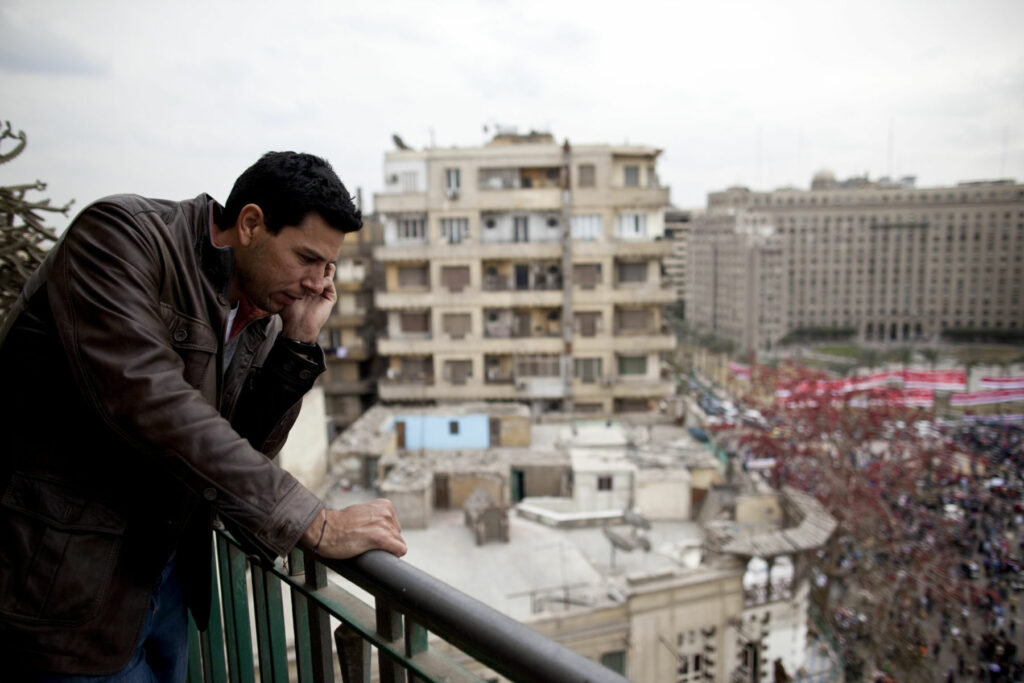
Misinformation and disinformation have become increasingly prevalent in today's media landscape. What strategies do you believe news organizations should employ to combat them while maintaining journalistic integrity?
There's a lot of different components to that. One, I think there should be less of an emphasis on being first, and more an emphasis on being correct. Trying to slow down reporting is important, so that news organizations can try and get the right information, instead of just being first. Two, I think there have to be more robust systems in place to make sure that information that is being reported is vetted and verified, especially if you're relying more and more on user-generated content and social media and citizen journalism. And three, I think you probably have to constantly maintain a healthy dose of skepticism when you're dealing with information from official sources—official government sources, politicians, government agencies—so that you're compelled to verify and not just to repeat and relay information without proper verification and vetting.
In old-school journalism, there is a distinction between reporting and commentary. What do you think about journalists who are involved in opinion and commentary, and what changes have you seen in the journalism landscape?
There's no doubt that journalism over the years, over the last couple of decades, has evolved. I think people sometimes mistake commentary for reporting. And I think they're very distinct lanes. Historically, a lot of reporters used to offer their commentary. But what has changed is now that the participation of commentators is becoming more and more popular, becoming more and more common, I think a lot of people—a lot of viewers, a lot of readers, a lot of listeners—sometimes conflate opinion with facts. It's incumbent on news organizations to make sure those lines of distinction are clear.
But I also think it's very important for news consumers to make sure they understand and are aware of the difference between facts and opinions. You can have opinions based on facts, but people need to be aware of the distinction between the different roles commentators and journalists play. People are more familiar with that in print, because in print, it's very visual to them. They know that when they're turning the page, from the news section to the opinion section, they're going into a different department within the news world. But in broadcast, it's a little bit different, and people are still learning to make that distinction more and more regularly.
All of those peace agreements that Israel has signed have not fundamentally changed what Israel is doing with the Palestinians. It has not brought the Palestinians closer to their own freedom and liberation.
- Ayman Mohyeldin
There are so many different schools of thought about objectivity. It's understandable that journalists should not take sides with any political factions or individuals or politicians, but when it comes to objectivity, are there values—like democratic values and universal rights—they should take sides with?
First of all, objectivity is kind of relative to where you sit. What different people are seeing at any given time can be real, but they can also be different, the viewpoint of a conflict depending on what side you're on. The challenge is not to focus so much on objectivity as much as it is to focus on plurality: Can you expose your viewers and audience to the most informed variety of information, so that they can conclude for themselves what is happening and see for themselves what is happening? In theory, it's great, but I don't think that any human being can just report without having their own personal biases in the coverage and in the reporting. Everything from the story selection, to how you cover the story, to why you cover the story—they are all micro examples of bias that can affect the final outcome. The more important emphasis is to try to encourage a plurality of viewpoints and ideas and reporting, so that you can get as many different sets of facts and as many different sets of opinions presented to the reader or the listener or the viewer.
You started working in journalism right before 9/11. How do you think the trust of people toward the media has changed over the past two decades, and in particular since the rise of more right-wing politics in the U.S.?
It's safe to say that people's confidence in media over the last several decades, not just recently, has eroded. And it has eroded for a variety of reasons—some structurally, some as a result of mistakes, some of it unwarranted, or unfairly, if you will. But I think the general rise of right-wing media across the board is not something that is fundamentally bad. I don't think that having a variety of viewpoints in a variety of different media outlets looking at different stories from different kinds of philosophies is bad. I don't think as a matter of principle that the rise of right-wing media, or the rise of any type of media, is fundamentally bad. I think the more media you have, the better it is for viewers, readers and listeners to be able to access more information, more opinion, more viewpoints and make their own conclusions.
What I meant was mainly about those viewpoints that target and attack the media, to basically weaken the institution as a whole and make people suspicious about the media as one of the pillars of a democratic society.
All I can say is really it's unfortunate. Look, the media is definitely subject to criticism. There's no institution in a free society that should not be criticized, or is not above criticism. I think the question is, on what basis does the media get criticized? Is it fair? Is it not fair? What's the evidence that's presented? Those are the important questions when looking at or evaluating whether or not the media as an institution should be criticized. People who study this academically can point to a lot of fundamental and structural problems within the media landscape generally. But it's hard to speak about generalities overall. You have to evaluate whether or not media criticism is valid. Is it based on fact? Is it just trying to weaken the institution of the media?
Because when you don't have a healthy media, when you don't have a healthy press in a free society, you go down a dangerous slope of having a very uninformed citizenry, which then has secondary, knock-off effects on how people make decisions in their democracy, how they vote and how they participate in their society.
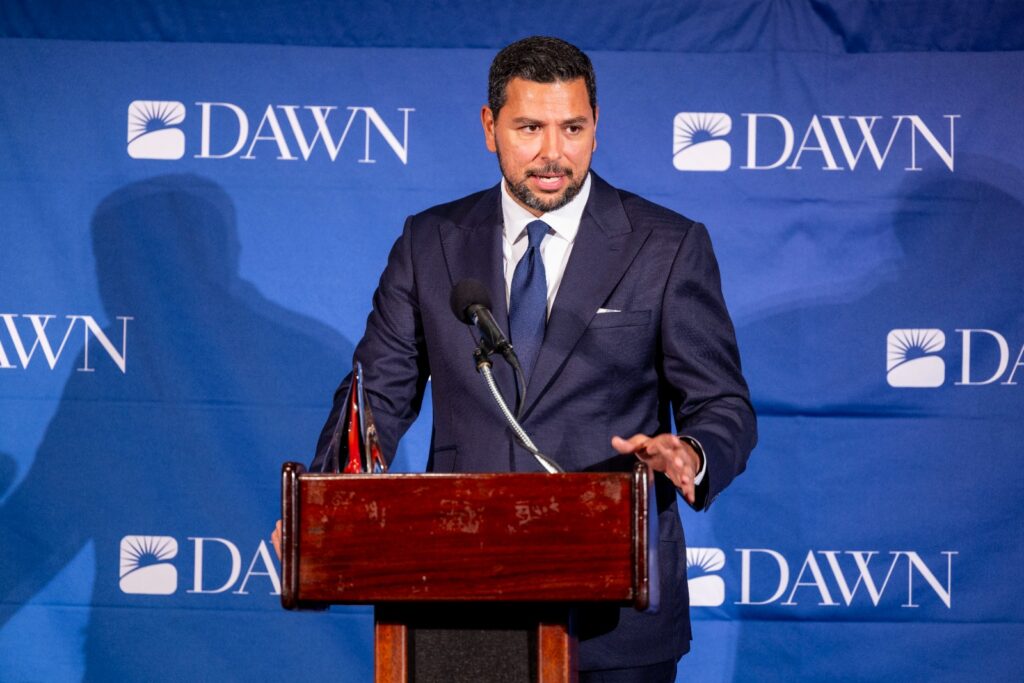
On Senator Robert Menendez's corruption case, what does it say about U.S. politics that a member of Congress can have so much influence on U.S. foreign policy and basically facilitate military aid and the transfer of arms to Egypt, despite the widespread criticisms of its human rights record? How does it make U.S. politics look?
Well, I think it makes U.S. politics look very complex. I mean, the truth is American politics and how these things work are not very black and white. Certainly, the chairman of the Senate Foreign Relations Committee has a lot of power. But so does the secretary of state. So does the Pentagon. So does the White House. It would kind of be misleading to just focus on one person at this current moment and say, Look at how much power he has. I think the broader takeaway is that American politicians are subject to corruption. We need to make sure that there are rules and regulations in place to prevent corrupt officials from being able to undermine human rights in any capacity, so that foreign policy is not subject to corruption or subject to influence by foreign governments or other outside influences.
Do you think that this issue of foreign governments infiltrating U.S. politics and trying to buy influence has gone under the radar in the media, particularly in coverage of foreign affairs? Because it's not just Egypt, there are other countries in the Middle East that have tried to buy influence, using all the legal and illegal means to basically push their agendas in the U.S.
Foreign governments are going to try to do whatever they can, with whatever tools and power they have at their disposal—and perhaps some of it is legal, perhaps some of it is illegal—to try to influence U.S. foreign policy in their favor. I think the responsibility for those in this country is how do you make sure that the influence of foreign governments is visible and transparent and not corrupting the American system? It's all about how do you design rules and regulations and protections? And how do you put mechanisms in place so that you can track that influence and see whether or not that influence is above board, or in any way shape or form nefarious?
On the possible diplomatic normalization between Saudi Arabia and Israel that the Biden administration has been pursuing, what would it mean for peace and stability in the Middle East?
Saudi Arabia and Israel have not been at war, so I don't think that them signing a peace agreement is somehow going to change the fundamental dynamics of the Middle East. It might create more economic opportunity for both countries. It may create some more cooperation. But I'm not sure it fundamentally changes what is happening on a street level in the Middle East. You can look at many examples of Egyptian-Israeli peace, Jordanian-Israeli peace, Morocco-Israeli peace, UAE-Israeli peace—all of those peace agreements that Israel has signed have not fundamentally changed what Israel is doing with the Palestinians. It has not brought the Palestinians closer to their own freedom and liberation.
I remember at journalism school there was a saying that for the best coverage on Israel-Palestine, it's better to go read Israeli newspapers, for example, Haaretz. The point was that there are a lot of obstacles to honest coverage of the Israel-Palestine conflict in the U.S. What do you think are the main problems in covering the conflict in U.S. media?
That's like a PhD thesis. I can just say very briefly, I think there has fundamentally been an inaccurate reflection of the realities on the ground in American media. I think a lot of American viewers and readers and listeners did not have an accurate understanding of what the conflict was about or what was actually happening on the ground. Over the years, it has been hard for news organizations, for a variety of reasons, to accurately reflect what is happening on the ground, certainly within the context of the occupation. As a result, their viewers were not fully informed of that reality or didn't have a good understanding of what that reality was like. There's also the component of U.S. politics, which has historically been very tilted toward Israel. The political discourse in this country did not allow for different opinions to exist about the conflict, did not allow for different narratives to exist about the conflict, and did not allow for a more accurate representation of the conflict to Americans.












